Food quality is more important than calories for health and wellness
I just got back from a brisk one-hour morning walk with my 16-year-old Jack Russell Terrier, Gambit.

Here’s where we went and how fast we went (this accounts for pee and sniff stops) —
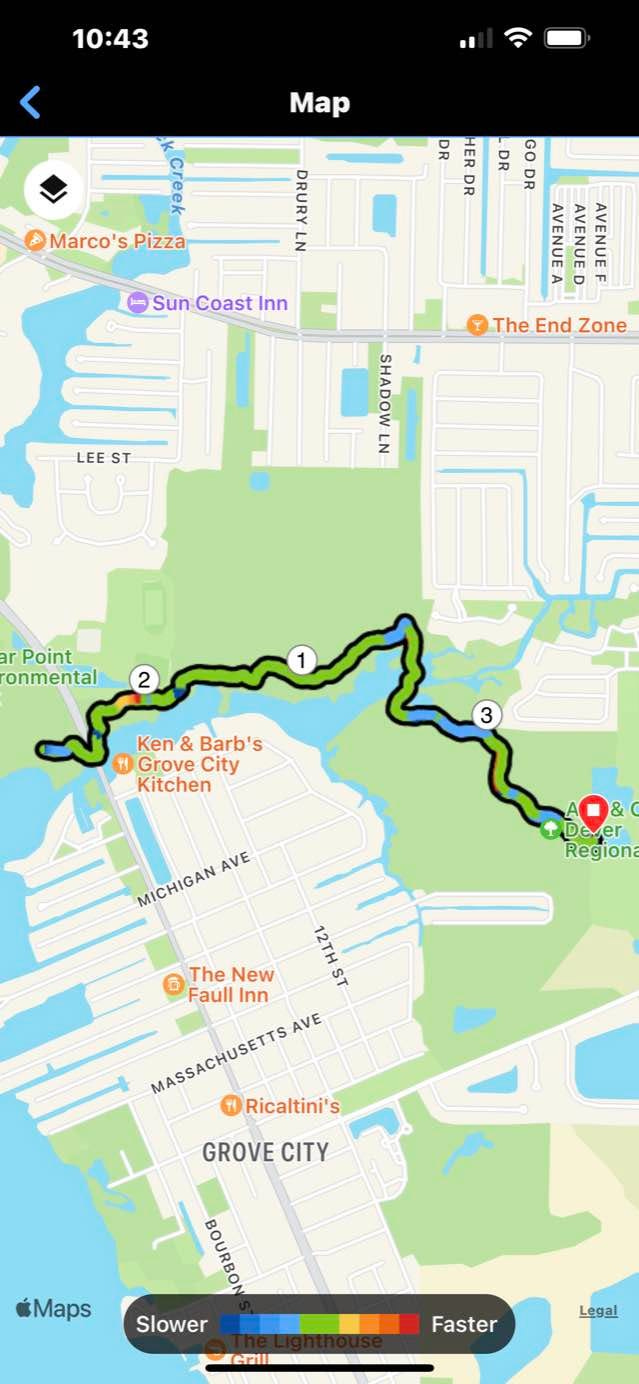
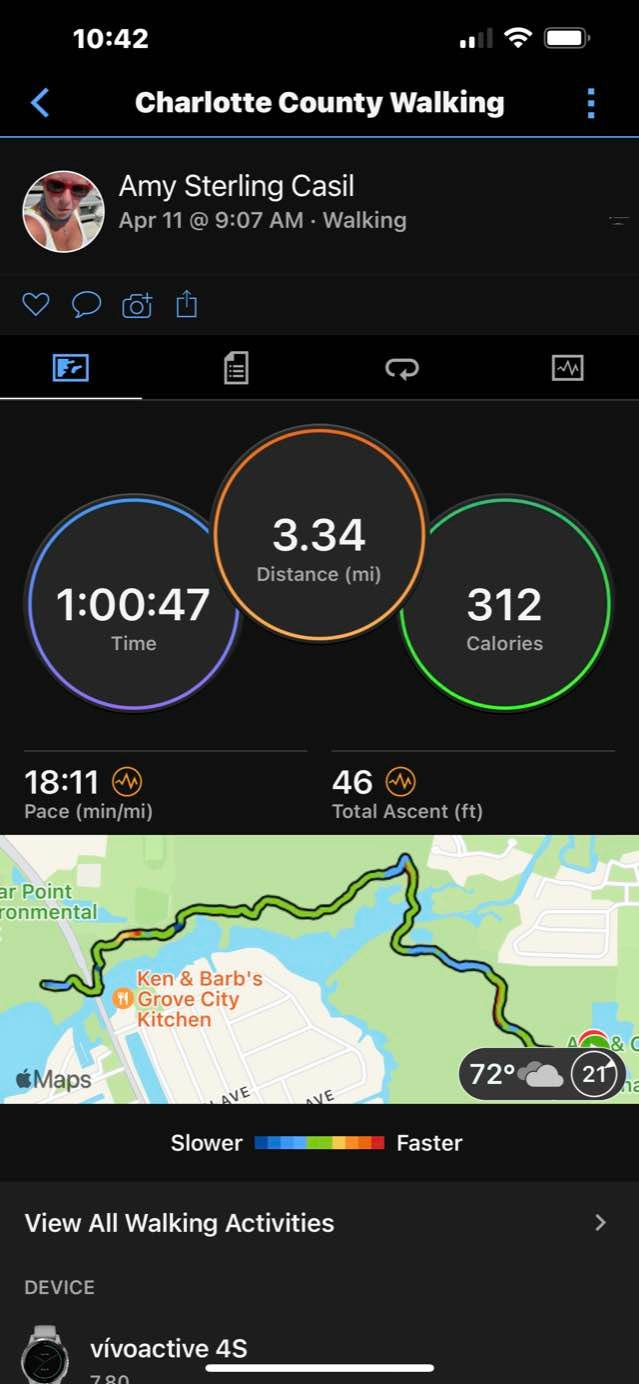
I was happy with this pace, because Gambit likes to stop and sniff and I don’t want to deny him this pleasure, but I also want to get a little bit of cardio in as well. This was our typical Tuesday walk at one of our nearby Environmental Parks.
So, I burned 312 calories according to my brand-new Garmin Vivoactive 4S.
All right! I can have a donut now!
Bzzzt!
Not so fast.
That’s the way I was thinking during all that time I was eating Reese’s Peanut Butter Cups every night. I was not only not losing weight despite calorie counting and eating relatively decent meals — I was slowly gaining weight.
How is this possible? Had I slowed my metabolism so much that I could be advancing my cardiovascular health and doing over 11,000 steps a day, every day — and over 300 minutes of weekly cardio exercise as well as strength training —
How on earth?
Check this out: here are my last 12 month totals from Garmin. Yet only in the past three months have I begun to lean out.
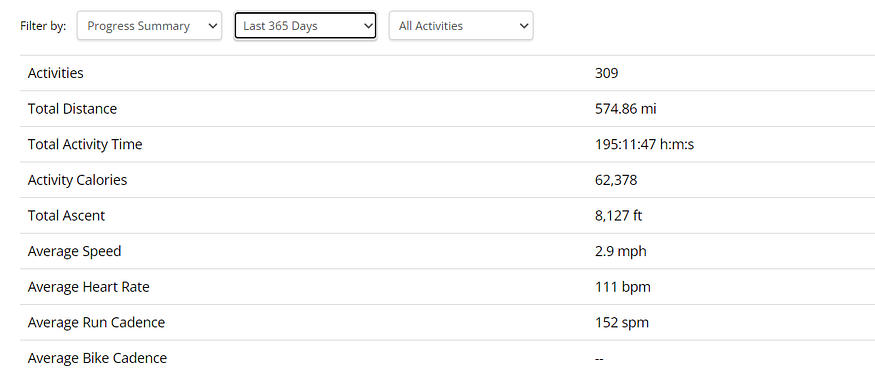
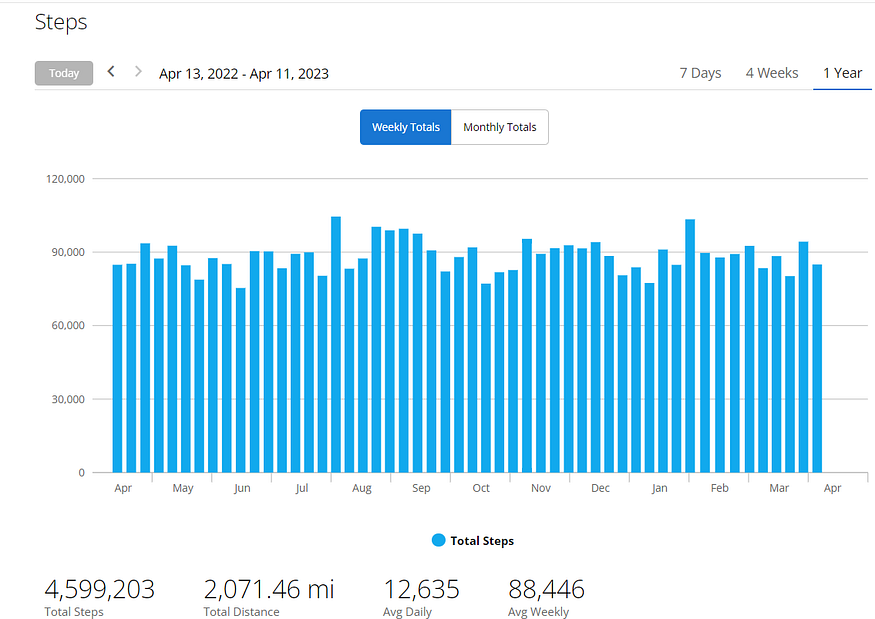
I eat approximately 1,600 calories a day. I log nearly everything I eat and drink, and have been for over a year.
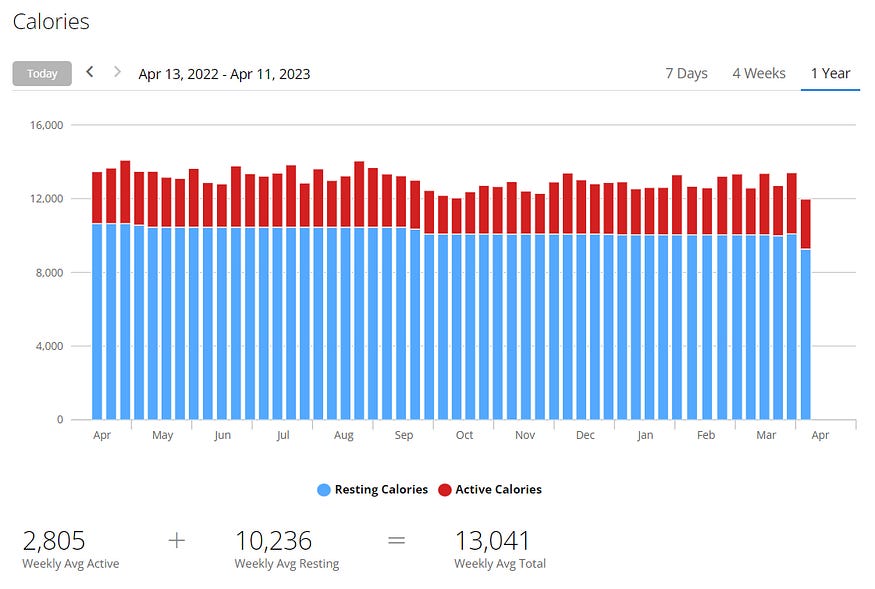
I was eating fewer calories than my fitness tracker told (and tells) me I was burning and still gaining weight —
I’ve already written about the metabolic harm that strict, short-term dieting does to the metabolism. When scientists studied people who had been on the television show “The Biggest Loser,” they discovered that their metabolisms had slowed to adjust to the low-calorie, high activity weight loss program. This phenomenon is called metabolic adaptation.
I think that my Garmin fitness tracker is accurate: these are close totals for the calories I am actually burning.
Many women may be shocked by how few calories they burn, even if they are quite active. But I don’t think I had “metabolic adaptation.” I wasn’t dieting strenuously, and I’ve only done that a few times in my life.
I have, however, counted calories nearly my whole life.
What was I doing wrong?
Eating highly processed foods every day: notably, my evening Reese’s Peanut Butter “Big Cup.” I was so fond of this treat that I’d work out harder so I could eat not just one, but two Big Cups. Bruce loves me so much he was buying them for me.
Thanks to the way our bodies handle highly-processed foods, especially ones as sugar-laden as a Reese’s Peanut Butter Cup, I was “magnifying” and increasing the effect of these sugar-filled, highly-processed calories on my body, my digestive system, my microbiome, and inflammatory responses.
I can work out 20% more each week, and my fitness tracker shows me a measly 1 or 2% increase in calories burned.
This is because fitness and weight are two different things.
I was pretty fit all those times I worked out. I had good cardiovascular health and low blood pressure.
But I was moving toward prediabetes and also scoring high triglycerides.
This is due to the way our bodies digest highly-processed foods. The older we get, the more difficult it is for our bodies to handle these foods without developing insulin resistance and all of the other related problems that come from chronic inflammation.
Part of this phenomenon is certainly due to our microbiome and its composition. There are sugar-loving microbes that predominate in the microbiomes of most people in the U.S., especially those with obesity and metabolic illness.
So, I might have been loving that Reese’s and my gut microbes were too.
Today, I did enough cardio exercise to be able to eat a donut.
But I’d rather eat an apple instead. Followed by a handful of nuts, and maybe a few carrots.
That way I know I’ll continue to feel energetic and well.
And I won’t be training my body to crave sugar and processed foods and be slowly, inexorably, turning into a human Weeble. I’d rather not wobble, and at my age, the last thing I want to do is fall down.
Sources:
Pugle, Michelle. “How Your Body Tries to Prevent You from Losing Too Much Weight,” Healthline, 28 January 2022, url: https://www.healthline.com/health-news/how-your-body-tries-to-prevent-you-from-losing-too-much-weight

Leave a Reply